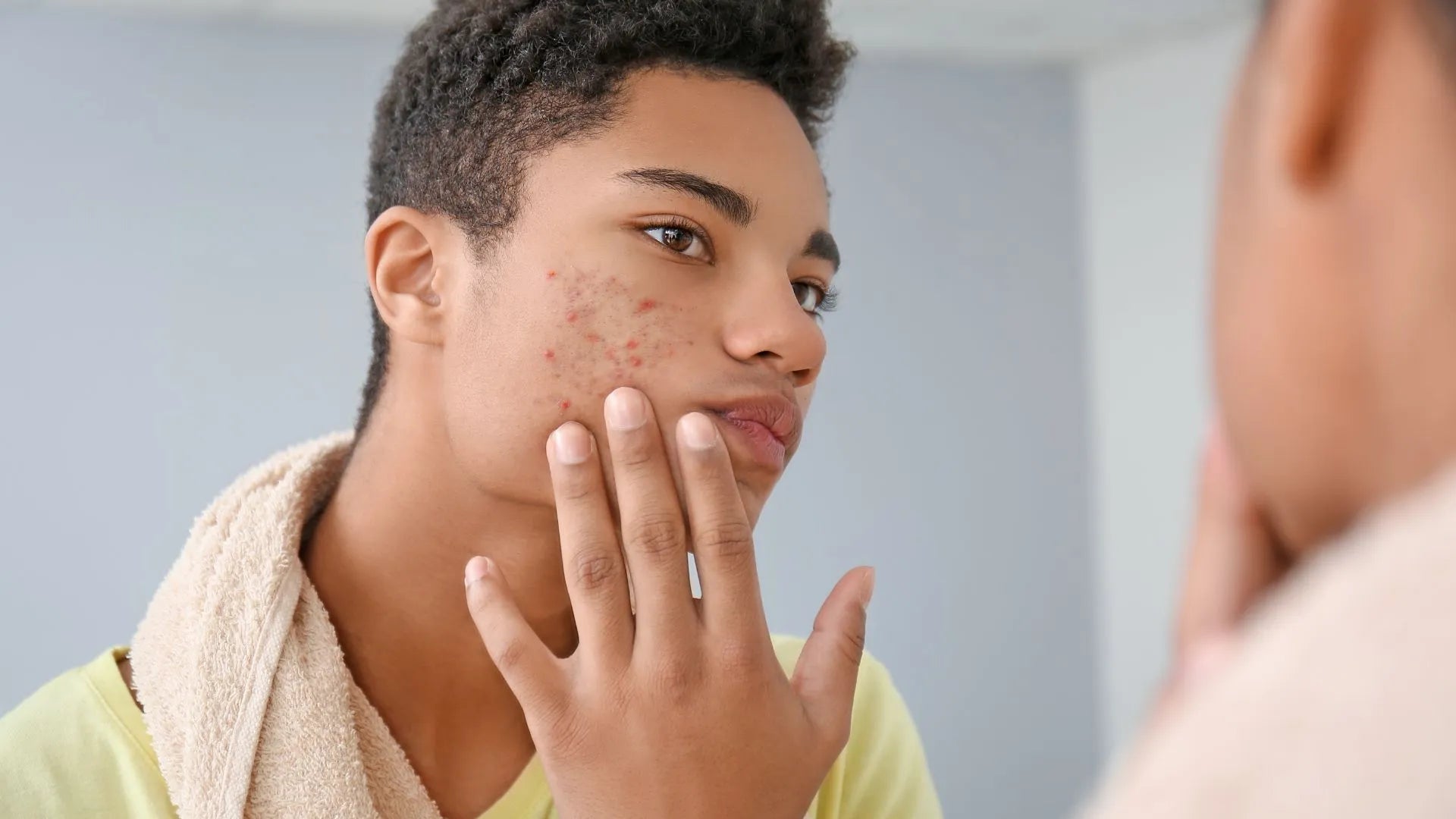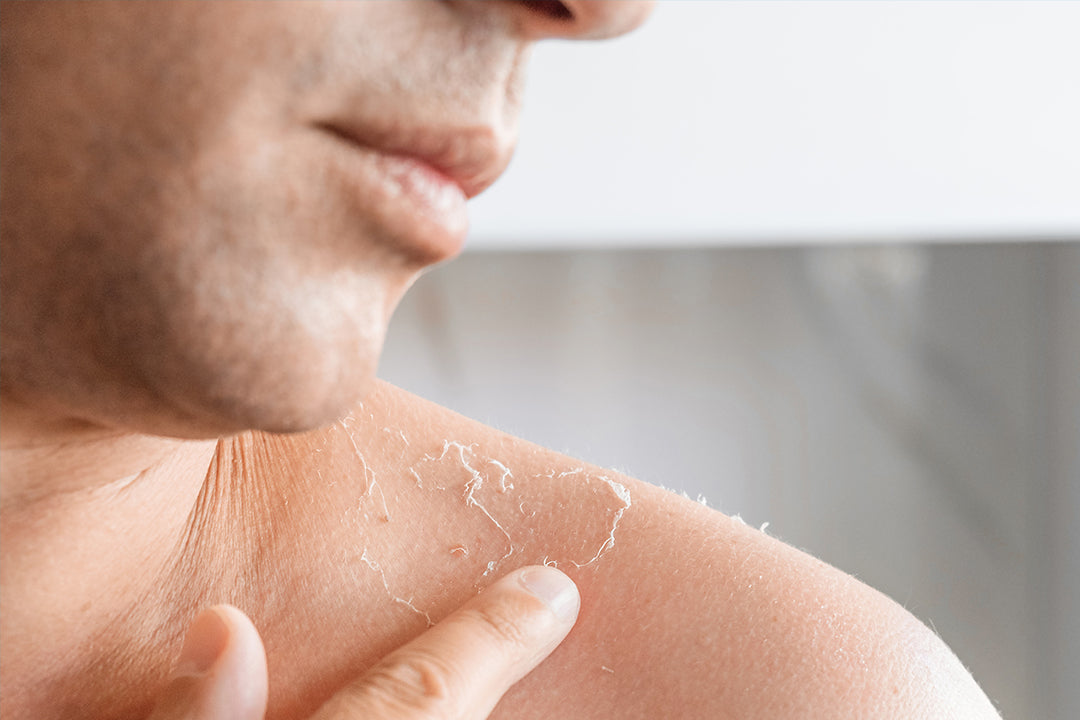If you've ever struggled with acne, you know how frustrating it can be. Not only do breakouts affect your skin's appearance, but they can also leave behind lasting scars and enlarged pores. Acne scarred pores can have a significant impact on your self-esteem and overall well-being. In this article, we will explore the different types of acne scars, discuss treatment options, and provide self-care tips to help you manage your skin concerns.
Types of Acne Scars
Acne scars can vary in appearance and severity, depending on the type of acne and your skin's healing process. Here are the most common types of acne scars:
- Atrophic scars: These are depressed scars that appear as small indentations on the skin. They are caused by a loss of tissue during the healing process.
- Hypertrophic and keloid scars: These scars occur when the body produces too much collagen during the healing process, resulting in raised, thickened areas of skin.
- Post-inflammatory hyperpigmentation: This is not a scar itself, but rather a darkening of the skin that can occur after an acne breakout. It is more common in people with darker skin tones.
Understanding the specific type of acne scars you have is crucial in determining the most effective treatment options. Let's explore some of these treatments in more detail.
Treatment for Atrophic Scars
Atrophic scars, also known as depressed scars, can be challenging to treat. However, several options can help improve their appearance:
- Dermatologist treatments: Dermatologists may recommend procedures such as laser resurfacing, chemical peels, microneedling, or subcision to stimulate collagen production and promote skin regeneration.
- Home treatments: Over-the-counter creams and serums containing ingredients like retinoids, alpha hydroxy acids, or lactic acid can help exfoliate the skin and reduce the appearance of atrophic scars.
It's essential to consult with a dermatologist to determine the best treatment approach for your specific needs.
Treatment for Hypertrophic and Keloid Scars
Hypertrophic and keloid scars require a different treatment approach, as their raised nature requires targeted intervention:
- TCA CROSS: This procedure involves applying trichloroacetic acid (TCA) to the scarred area to promote controlled skin peeling and collagen remodeling.
- Laser skin resurfacing: Fractional CO2 or erbium MLP lasers can be used to remove the top layers of the skin and stimulate collagen production.
- Subcision with dermal fillers: This technique involves using a needle to break up the scar tissue, followed by the injection of dermal fillers to elevate the depressed area.
These treatments should only be performed by qualified professionals, and a consultation with a dermatologist or cosmetic surgeon is necessary to determine the most suitable option for your scars.
Treatment for Post-inflammatory Hyperpigmentation
Post-inflammatory hyperpigmentation, or dark spots left behind after acne breakouts, can fade over time. However, there are treatment options to expedite the process:
- Spectra Laser Carbon Suspension Peel: This procedure uses laser energy to target pigmented areas and promote skin rejuvenation.
- Chemical peels: Chemical peels containing ingredients like salicylic acid can help exfoliate the skin and reduce hyperpigmentation.
- SCITON Microlaserpeel: This laser treatment removes the outermost layers of the skin, revealing fresh, undamaged skin beneath.
It's important to remember that post-inflammatory hyperpigmentation may fade naturally over time, so patience is key. However, if the discoloration persists or causes significant distress, consulting with a dermatologist can provide guidance on the best treatment options.
Self-Care Tips for Acne Scarred Pores
In addition to professional treatments, self-care plays a crucial role in managing acne-scarred pores. Here are some tips to incorporate into your skincare routine:
- Gentle cleansing: Use a mild cleanser to avoid further irritation and inflammation. Avoid harsh scrubbing or using abrasive exfoliants.
- Sun protection: Apply a broad-spectrum sunscreen with at least SPF 30 daily to protect your skin from harmful UV rays, which can worsen the appearance of scars and hyperpigmentation.
- Moisturization: Hydrate your skin with a non-comedogenic moisturizer to keep it supple and promote healing.
- Avoid picking or squeezing: As tempting as it may be, avoid picking at acne or scars, as this can worsen inflammation and lead to further scarring.
Remember to be consistent with your skincare routine and give your skin time to heal. Patience and persistence are key when managing acne scarred pores.
Takeaways
Acne scarred pores can have a significant impact on your self-esteem and overall well-being. Understanding the different types of acne scars, exploring treatment options, and implementing self-care tips can help you manage these skin concerns effectively. Remember, it's essential to consult with a dermatologist or skincare professional to determine the most suitable treatment approach for your specific needs. With patience and the right care, you can improve the appearance of your acne scars and regain your confidence.








